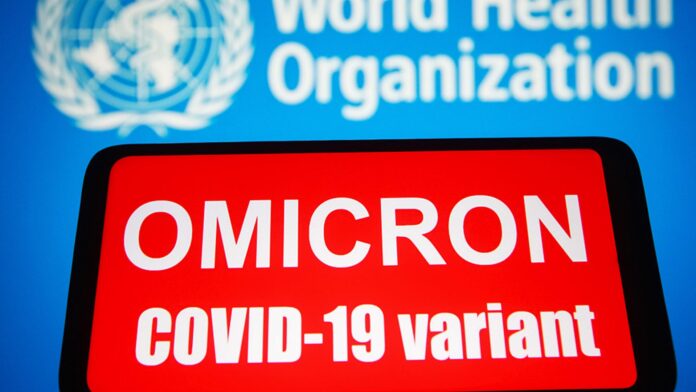Nigeria still in Omicron orbit with low vaccination rates
By Jeph Ajobaju, Chief Copy Editor
Nigeria like every other country remains in the sights of Omicron despite the removal of Nigeria and 10 other African countries by the United Kingdom from its red list and travel ban, which also applies to all other nations.
London announced on Tuesday the removal from the red list from 4am on Wednesday Angola, Botswana, Eswatini, Lesotho, Malawi, Mozambique, Namibia, Nigeria, South Africa, Zambia, and Zimbabwe.
But that does not cancel the coronavirus facts in any of the countries or should it make them assume they are effectively dealing with Omicron.
About 1,000 cases of Omicron have been reported across 57 countries worldwide with 10 African countries accounting for 46 per cent, according to the World Health Organisation (WHO).
Canada still maintains its travel ban on the 11 African countries.
Coronavirus challenges Nigeria in particular still has to tackle include:
- Nigeria conducts 0.07 tests per 1,000 people a day. Compared with 14 tests per 1,000 people per day in the UK and eight per 1,000 in France.
- Nigerians with fake coronavirus certificates test positive abroad
- Funds voted for Covid vaccine research are being stolen
- Aso Rock votes more money for food and travel than for teaching hospitals
- Abuja does not heed health warnings given by professionals
- Health workers poorly paid at home are heading abroad
__________________________________________________________________
Related articles:
Africa on Omicron global leaderboard
Tomori, virology prof, blames Abuja’s negligence for travel ban
Nigerians with fake coronavirus results test positive abroad
BBC explains how scientific data led to Nigeria’s travel ban
__________________________________________________________________
Why UK cancelled red list
The UK red list was reintroduced in late November as a precaution after the emergence of Omicron in that country.
Nigeria was added on December 4 after travellers from Nigeria tested positive for the virus on arrival in the UK.
South Africa and Nigeria led the charge of racism against the UK and both echoed the United Nations in describing the ban as “travel apartheid”.
Nigeria threatened to retaliate with a travel ban on the UK.
But British Health Secretary Sajid Javid explained that the ban was lifted on Tuesday because Omicron had spread so widely the rules no longer had much purpose.
“Now that there is community transmission of Omicron in the UK and Omicron has spread so widely across the world, the travel red list is now less effective in slowing the incursion of Omicron from abroad,” he told parliament.
“Whilst we will maintain our temporary testing measures for international travel we will be removing all 11 countries from the travel red list effective from 4am tomorrow morning.”
UK quarantine rules
The BBC reports that currently, all UK arrivals from red list countries must pay for and self-isolate in a pre-booked, government-approved hotel for 10 days.
They must also take Covid tests within 48 hours of setting off for the UK and PCR tests within two days of their arrival.
Some arrivals have already paid thousands of pounds to stay in government-approved quarantine hotels, and there have been complaints of chaotic organisation and inedible food during their stays.
Javid said he had asked for urgent advice on whether those currently in managed quarantine would be able to leave early.
He also said he was “very persuaded” by calls to reimburse people and hoped to make an announcement soon.
Red list didn’t slow Omicron spread
The point of putting countries on the red list was to act quickly to slow the spread of Omicron, the BBC adds.
Now it has spread in the community, the government doesn’t think putting people from a limited list of countries in hotels is useful.
It will be welcome news to people with plans to come to the UK from countries like South Africa and Nigeria, or who had delayed their return from those countries.
But it will be frustrating for those who did get caught up in the revival of the red list, which only started about a fortnight ago. Some people currently staying in hotels would like to see the government pay their costs.
The travel industry wants all restrictions removed. Businesses see testing measures as putting a dampener on their recovery. It seems the government is not prepared to go that far, just yet.
The move follows anger from African countries, with the UN describing the ban on non-UK residents entering England as “travel apartheid”.
The travel industry had also warned the restrictions were hurting business.
Tim Alderslade, head of trade group Airlines UK, said emptying the red list made “complete sense”, but that the government should also scrap pre-departure and day two tests for all arrivals.
“If the red list isn’t necessary, given that Omicron is established here at home, then neither are the costly emergency testing and isolation measures imposed on even fully vaccinated travellers, which again put us completely at odds with the rest of Europe.”
British Transport Secretary Grant Shapps said these testing measures would be reviewed in the first week of January.
“As always, we keep all our travel measures under review and we may impose new restrictions should there be a need to do so to protect public health,” he said on Twitter.













